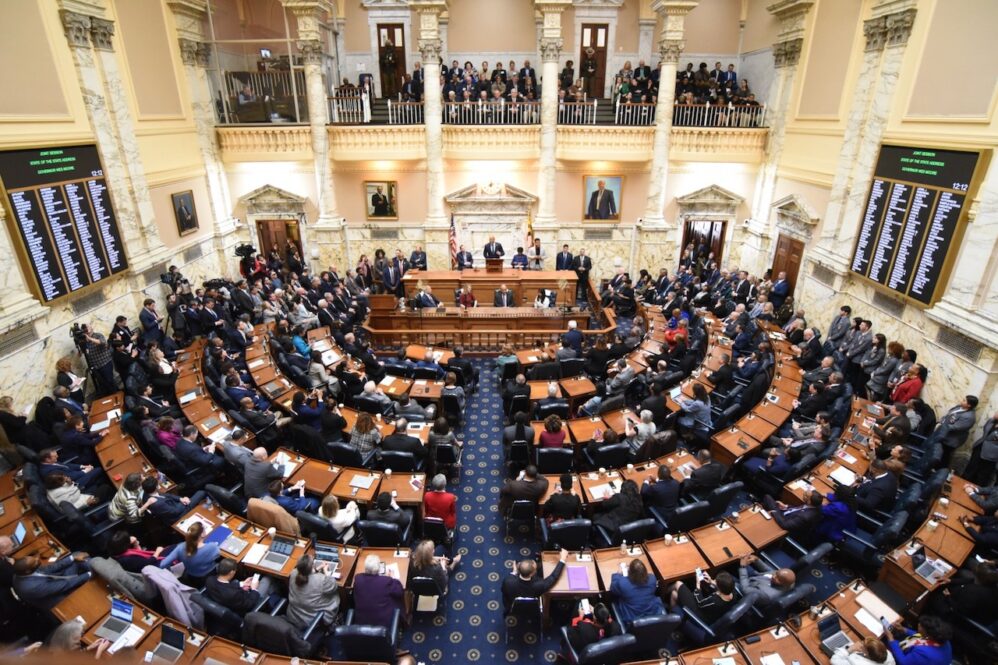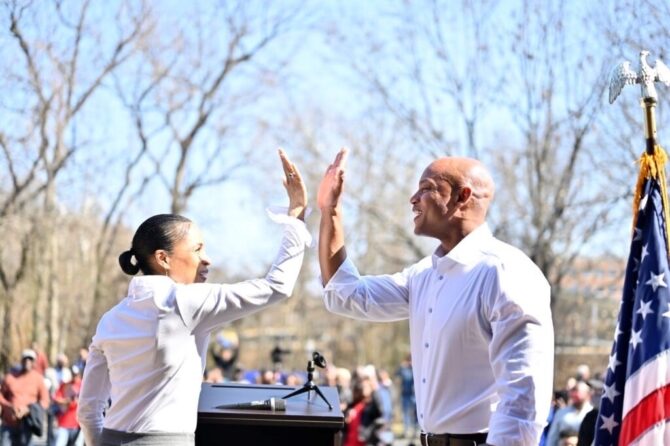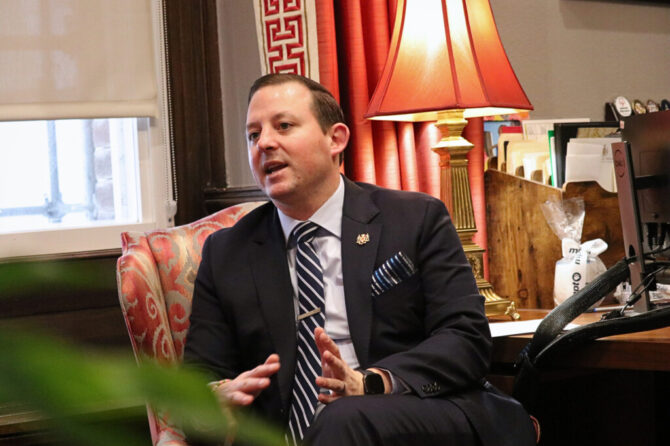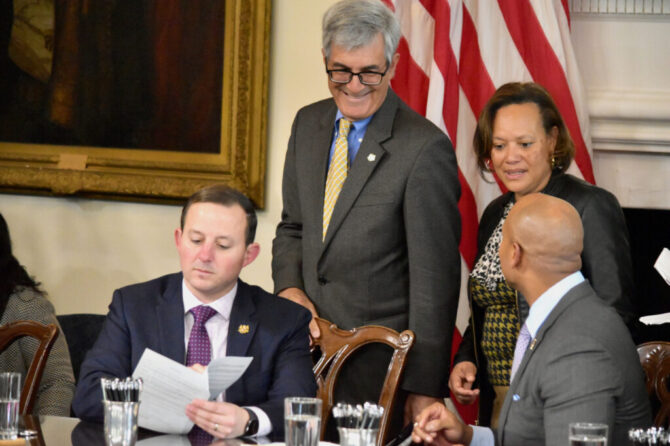MARYLAND MATTERS: A House committee vote Wednesday set up another battle with Senate fiscal leaders over finding new revenues this year.
The House Ways and Means Committee voted 15-7 to approve House Bill 1319, which could open the door to casino-style iGaming in Maryland. The committee vote fell mostly along party lines with Del. Joe Vogel (D-Montgomery) joining the six Republicans in opposition.
The vote comes as Committee Chair Vanessa E. Atterbeary (D-Howard), sponsor of the gaming bill, is also working on a tax package even as Senate leaders said they oppose both gaming expansion and taxes this session.
“I think it’s a different story when things are in front of you and actually on the table and are passed,” said Atterbeary. “We made it very clear that our members are interested in doing something for the Blueprint, for transportation this session and taking any type of hard vote this session and not next session. We’re going to send over what we think is the right thing to do.”
The iGaming bill, which has no companion in the Senate, sets up a system of licensing that includes ensuring minority- and women-owned businesses can have an equity stake in the expanded industry. Additionally, the bill lays out the distribution of revenues, which will primarily benefit the education reform package known as the Blueprint for Maryland’s Future.
The bill amends the sections of the Maryland Constitution dealing with gaming, including slot machines and casinos.
If passed by both the House and Senate and signed into law by the governor, the measure would require the approval of a majority of voters in the general election in November.
The vote Wednesday night by the committee sends the bill to the full House. The timing all but guarantees the bill will be in the Senate by a key deadline.
“Crossover Day” is the deadline for guaranteeing that bills passed in one chamber will be considered in the weeks before the session ends at midnight April 8.
Meeting that loose deadline is only part of the battle.
Getting a bill into the opposite chamber does not guarantee it will be acted upon favorably or even acted upon at all.
For weeks, Senate leaders including Senate President Bill Ferguson (D-Baltimore City) and Senate Budget and Taxation Chair Guy Guzzone (D-Howard) have said their chamber is not ready to move the state into casino style games accessible on computers, phones, and other devices.
On Wednesday, just hours before the House committee vote, Guzzone reaffirmed the position against iGaming.
The Senate held hearings last month on two iGaming-related bills sponsored by Sen. Ron Watson (D-Prince George’s). One would put the issue before voters for authorization in November and allow lawmakers to return in 2025 to hash out details. The bill is similar to how the state implemented recreational adult use cannabis sales.
A second, similar to Atterbeary’s, lays out a separate scheme for licensing and taxing the industry and putting the measure before voters for approval.
The Senate Budget and Taxation Committee has yet to act on either.
Atterbeary on Wednesday said she has concerns about how the state will fund education and transportation. She said she is hopeful after conversations with Guzzone and Ferguson.
“My takeaway from the conversation was ‘do what you need to do, and we’ll take a look at,’” Atterbeary said. “So, we’ll see what happens in the next couple of days.”
Budget passes preliminary Senate vote
Meanwhile, the Senate Wednesday gave preliminary approval to a $63 billion budget for fiscal 2025.
The voice vote approval clears the way for a final vote in the Senate as early as Thursday.
The vote followed a brief debate in which the Senate rejected two amendments proposed by Republicans.
The first, proposed by Senate Minority Whip Justin Ready (R-Carroll and Frederick), sought to add $10 million to state aid to community colleges. That amendment was rejected by a 6-39 vote with seven Republicans joining the Democratic majority.
The Senate also rejected an amendment proposed by Sen. Mary Beth Carozza (R-Lower Shore) to strip state Medicare funding for abortions except in the case of rape, incest or serious deformity or abnormality of the fetus. The amendment is one proposed annually by Republicans in the House and Senate.
The Senate rejected the amendment in a party line 12-34 vote. Sen. Johnny Mautz (R-Middle Shore) was absent.
Pay parity
One issue not fixed in the budget is an error in the pay for the state comptroller.
By law, the attorney general, comptroller and treasurer are all paid the same salary. However, in the budget introduced by Gov. Wes Moore (D), the pay for the comptroller — Brooke Lierman (D) — was set at $3,000 lower than the $173,000 for either of the other two offices, which are held by men — Attorney General Anthony Brown (D) and Treasurer Dereck Davis (D).
Sen. Cheryl C. Kagan (D-Montgomery) said she flagged the issue during the budget debate and was told the Department of Budget and Management would provide a fix in a supplemental budget amendment.
Ironically, Kagan spotted the issue a day after state officials, including Lt. Gov. Aruna Miller (D), released a report on gender pay gaps in Maryland.
The “Equal Pay Day Report” found that women in Maryland earn 86 cents for every dollar earned by a man. The amount is 5 cents above the national average for women.










